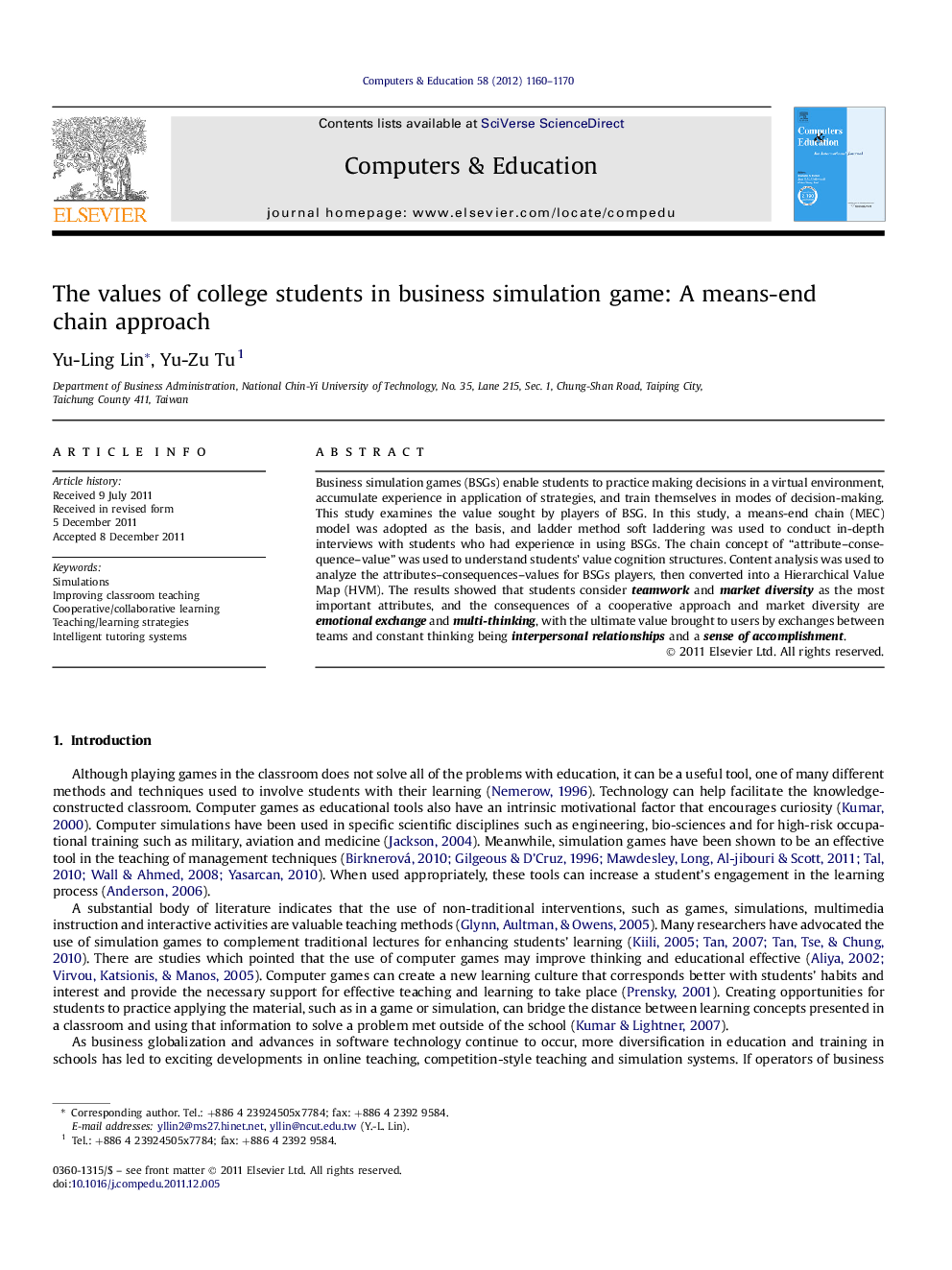| Article ID | Journal | Published Year | Pages | File Type |
|---|---|---|---|---|
| 348754 | Computers & Education | 2012 | 11 Pages |
Business simulation games (BSGs) enable students to practice making decisions in a virtual environment, accumulate experience in application of strategies, and train themselves in modes of decision-making. This study examines the value sought by players of BSG. In this study, a means-end chain (MEC) model was adopted as the basis, and ladder method soft laddering was used to conduct in-depth interviews with students who had experience in using BSGs. The chain concept of “attribute–consequence–value” was used to understand students’ value cognition structures. Content analysis was used to analyze the attributes–consequences–values for BSGs players, then converted into a Hierarchical Value Map (HVM). The results showed that students consider teamwork and market diversity as the most important attributes, and the consequences of a cooperative approach and market diversity are emotional exchange and multi-thinking, with the ultimate value brought to users by exchanges between teams and constant thinking being interpersonal relationships and a sense of accomplishment.
► Attribute–consequence–value illustrates students’ value in BSGs. ► Students consider teamwork and market diversity as the most important attributes. ► The consequences are emotional exchange and multi-thinking. ► The ultimate values are interpersonal relationships and sense of accomplishment. ► The study further explored the difference in values in gender groups.
